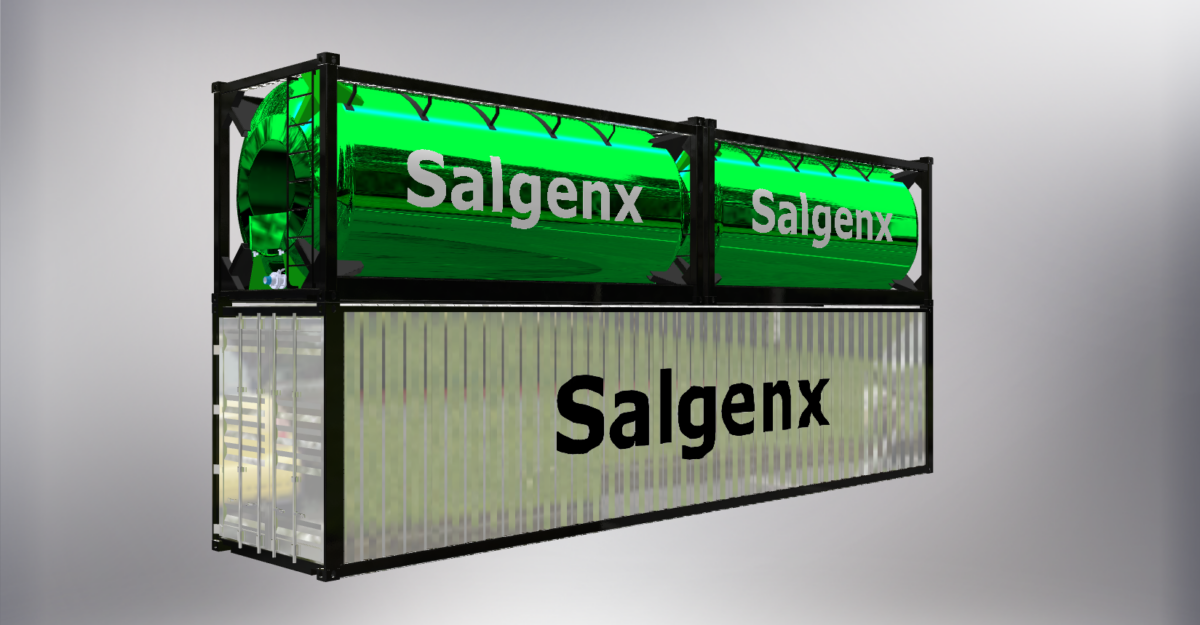From pv magazine Global
Salgenx has developed a graphene production method that uses its saltwater redox flow battery. The membrane-less battery charges and discharges by using an electrolyser that splits sodium chloride (NaCl) into sodium (Na) and chlorine.
“The chlorine is then stored in the aqueous electrolyte, while the sodium is stored in the cathode,” Salgenx CEO Greg Giese told pv magazine. “In this instance, the cathode comprises a sacrificial material, graphite, which intercalates the sodium. Salgenx applies a proprietary technique that exfoliates the graphite into individual layers of graphene, which can be further processed for higher purity.”
The process of graphene exfoliation occurs during charging due to an electrochemical process. When an electric potential is applied to the graphite host, it causes guest-charged species in the electrolyte to intercalate into the graphite’s interlayer galleries and produce gaseous products that contribute to structural expansion, according to a recent paper on the topic.
The method does not use up sodium, leaving it for the battery’s discharge process. Salgenx claims it produces graphene for less than USD 1.25 ($1.85) per gram. “Salgenx’s flow battery system typically takes 4 to 6 hours to charge, usually during off-peak hours, enabling simultaneous production of graphene to enhance payback and become a revenue model,” the US-based tech startup said in a statement.
The on-demand graphene production machine will initially target the fiberglass and carbon fiber fabrication industry but can reportedly be applied to any graphene additive space.
In March, Salgenx said it had developed a system that uses the electricity stored in its battery to produce clean drinking water from seawater.
This content is protected by copyright and may not be reused. If you want to cooperate with us and would like to reuse some of our content, please contact: editors@pv-magazine.com.









By submitting this form you agree to pv magazine using your data for the purposes of publishing your comment.
Your personal data will only be disclosed or otherwise transmitted to third parties for the purposes of spam filtering or if this is necessary for technical maintenance of the website. Any other transfer to third parties will not take place unless this is justified on the basis of applicable data protection regulations or if pv magazine is legally obliged to do so.
You may revoke this consent at any time with effect for the future, in which case your personal data will be deleted immediately. Otherwise, your data will be deleted if pv magazine has processed your request or the purpose of data storage is fulfilled.
Further information on data privacy can be found in our Data Protection Policy.